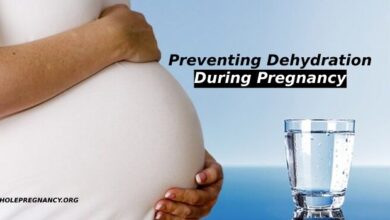Breathing Problems: Causes and treatment

What can cause breathing problems is a question that does not have a one word answer, as causing factors vary from allergies, infections to envirement.
Breathing problems :
Allergies, asthma, inflammation, and infection can all lead to serious respiratory problems. A proper diagnosis and treatment can help you manage your respiratory problems. If you are experiencing breathing difficulties, talk to your doctor immediately. Some cases might require immediate intervention.
What causes breathing problems ?
Some people experience difficulty breathing when they get cold. Sinusitis can also cause it. It may make it difficult to breathe through your nose for up to a week, before the inflammation subsides and your congested sinuses drain. Long-term respiratory problems (chronic) are common, these include chronic nasalitis, allergies and asthma. These can lead to symptoms like nasal congestion, itchy eyes, congestion and trouble breathing. Your lungs can be accessed through your nasal passage. Your nose and sinuses can be linked to many lung diseases. Sinus, or nasal passage inflammation can trigger asthma attacks.
The number one trigger of asthma are allergies. Breathing problems are very common, and the majority of people worlwide suffer from it. 17.3 million Americans are diagnosed with asthma. Both can occur together. They can make your life miserable if they aren’t treated. Smoking causes breathing problems, it damages the tubes (or “airways”) that transport air to your lungs. Smoking also damages tiny air sacs in your lungs called “alveoli,” which transport oxygen into your bloodstream and remove carbon dioxide (CO2).
Breathing problems can also be caused by secondhand smoking. Smoking causes the majority of lung cancer and most cases chronic obstruction pulmonary disease. Millions of people suffer from COPD (Chronic obstructive pulmonary disea). This includes emphysema, chronic bronchitis and chronic bronchitis . Lung cancer is rarer and rarely causes symptoms in its early stages. It can cause breathing problems and issues such as chest, back or neck pains. Other serious conditions that can cause breathing problems include pneumonia and tuberculosis.
Can allergy tests be used to diagnose breathing problems?
Allergy testing can help your doctor determine the root cause of your breathing difficulties. The prick method is one example, the doctor places a small amount of the allergen on your skin, and then inserts a needle. Your body may react to the allergen by becoming reddened. You might also experience itching or swelling. A skin test that involves your doctor injecting an allergen extract under your skin is another option. You can also take these tests:
- Allergy blood (also known as a RAST, or radioallergist test)
- Your doctor will give you small amounts of the allergen via your nose or mouth.
These are not as common as skin testing.
How can you treat breathing problems?
Triggers are things that can cause breathing problems, so avoiding them should be your number one priority. You can control allergies and asthma by avoiding what causes them. You can use a dust mask to protect your skin from the sun and other pollutants when you do housework or yard work. The treatment of breathing problems can also be done with medications.
It may be easier to breathe if you take oral or nasal allergy medications such as antihistamines or decongestants. Inhaled steroids may be helpful, these drugs can reduce inflammation in your airways. Allergy shots can lower your sensitivity and may help with some breathing problems. Inhaled and oral medications can be used to treat asthma. These medications can help reduce or prevent blockage of the airways and add mucus. Asthma sufferers must manage inflammation to maintain their airways open and reduce their sensitivity to asthma triggers such as:
- Viral Infections (cold and flu)
- Pollen
- Pet dander
- Mold spores
- Dust mites
- Cockroaches
- Polluting substances in the air
- Fragrances, fumes
- Smoke
- Food allergies
Some people can get asthma from even exercise or cold weather.
When You Should call an ambulance?
- You are so breathless that you cannot speak in sentences because you are too short of breath
- Feeling pain in your arm, chest or jaw.
- You feel weak or sick
If you are feeling short of breath, make an appointment with your doctor as soon as possible.
- Swollen ankles or feet
- When you lie down, you feel less breath.
- Have fever, chills, and a cough
- Have blue lips or fingertips
- When you inhale, make noises
- You have to exert a lot of effort in breathing
- are getting worse
What causes pregnancy breathing difficulties?
Women often feel breathless when pregnant, but this is not due to the joy of starting a new life. This unusual symptom can be normal because your uterus expands and your body adjusts to hormonal changes. Breathing difficulties can be a sign of serious complications such as pneumonia or blood clots. Continue reading to learn more about pregnancy shortness of breath.
Increased levels of progesterone can cause shortness of breath during early pregnancy. It can be difficult to breath in the first trimester of pregnancy as your body adjusts to new hormonal levels. After a few weeks, this symptom may disappear and then recur during the second trimester or third trimester.
Your baby’s size increases inside your abdomen. Other organs become squeezed and pushed aside. According to Laura Riley, M.D. at Massachusetts General Hospital in Boston, your lungs may not be able to expand fully with full breathing. Your diaphragm can not provide you much support because it is under pressure, but this doesn’t cause permanent damage. Your organs will return to their pre-pregnancy positions after your baby is born.
This breathlessness is usually relieved by most women before giving birth. Your baby’s head will drop into your birth canal approximately 2 to 3 weeks before you deliver. This will allow more space for your diaphragm, allowing you to breathe easier.
How to overcome shortness of breath during pregnancy
First, don’t be too concerned about the shortness of your breath during pregnancy. High levels of progesterone can help you take deep breaths and increase oxygen in your blood, even though it may seem like you are getting less air. Dr. Riley says that because of your pregnancy blood volume, more oxygen is passing through the placenta during inhalation and exhalation.
It is possible to relieve symptoms by giving your lungs and yourself as much space as possible. To expand your abdominal cavity, stand straight up, sit tall and prop yourself up on pillows. Slow down if you feel short of breath. Rushing makes your heart and lungs work harder. Also, you can consciously inhale in a way to raise your rib cage. Inhale deeply and notice if your ribs press against your hands.
What to do if you have breathing problems during pregnancy
Get medical attention immediately if you feel shortness of breath that is sudden or severe or associated with chest pains or a rapid pulse. Dr. Riley says that a blood clot may have formed in your lungs. This is known as a pulmonary embolism, and it can be dangerous for pregnant women with blood Clots in their legs. Remember that respiratory problems can also be caused by pneumonia .
According to Dr. Riley, pneumonia is the third leading cause of death in pregnant women. It usually comes with chest pains, fever and cough. Pneumonia can either be viral or bacterial. With either type, possible complications include respiratory failure, premature birth, and infections that could cause harm to your unborn baby. If your asthma worsens during pregnancy, you can seek medical advice. Pregnancy is safe for many asthma medications. Inhaled medication is more preferred by doctors because it has a greater localized effect and works well. However, if your chest feels tight or swollen, talk to your doctor.




